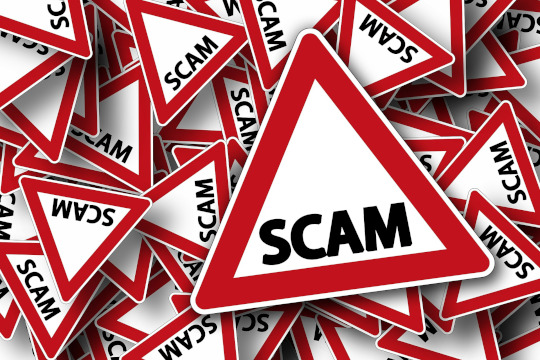How to Tell if Someone is Trying to Email Scam You
February 12, 2020

It's important to realize how scammers operate. From their perspective, it's just like your average sales cycle. They distribute their message, formatted in such a way as to attract potentially interested parties to generate leads. Then they curate those leads toward "buying in" to their scam. Just as in marketing, you're creating your message in such a way to attract the most desirable leads, so too are email scammers.
So the question then becomes, who's a desirable lead for an email scammer? The short answer: Someone who's gullible.
Have you ever received an email that was obviously a scam and wondered, "How can anyone fall for this?" If so, you're about to find out why.
Sending email is cheap. Scammers can send millions of emails at very little cost. Once you respond and they've got you "on the hook", this is where they invest their time and resources. For instance, it costs them almost nothing to send you an email posing as the IRS trying to collect supposed back taxes. But if you reply, or they get you on the phone, now they have to have an actual person spending time with you to convince you that you owe the taxes and explain how to pay. This costs significantly more. And if they're going to spend time doing this, they want to make sure there's a high percentage that they can reel you in (no different than legitimate lead generation and sales).
If you're not gullible, then you're likely to catch on during this process, which means they'll have spent time with you for no payoff. And the way they determine that you're gullible is by filling their email scams with errors. These can be misspellings, poor grammar, pixelated logos, broken links, and a variety of other things that you can tell are just "not right". The theory behind this is that if you fall for it despite all of these problems, then you're gullible enough to be scammed. Their goal with creating their email full of errors is to weed out anyone that will realize halfway through that it's a scam.
So how do you tell that an email is a scam? Look for obvious and glaring errors!
- Poorly written (misspellings, bad grammar, etc).
- Broken, fuzzy, or blocky images; outdated logos.
- Links that don't go anywhere, or links that go somewhere deceptively. For instance, you might see a link that says https://www.paypal.com, but when you hover over it, it may say something very different like http://paypal.com.fjlgea.ru.
If the email is coming from someone that you know, perhaps a co-worker, and it makes an out-of-the-ordinary request like "Please transfer $1,000 to account number 12345," maybe spend five seconds giving that person a quick phone call to verify that they actually sent it.
If you ever have questions about whether or not an email you received is legitimate, please reach out to us and we'll be happy to assist.
Sign Up!
Enter your name and email address below, and receive these excellent bit of helpful info on a regular basis.
